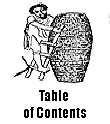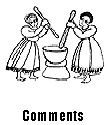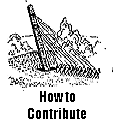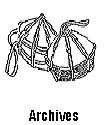 by:: Liyu Ambar
by:: Liyu Ambar
The Jimma Bar was as we had left it. The old timers were there, as was their wont, getting their last shot or fix before catching the last bus or taxi home. There were a couple of really close friends and they never took any form of public transport -- they walked home. That way, they burned the last vestiges of the alcohol from their breath. Their wives or children getting a lung full of the fumes that seemed to surround them as a shroud,they did not mind: it was what the neighbours might think they cared about most. That was the only chink in their armour.
As the friends wobbled and staggered their way home, a five-mile trek toward the western suburbs where even hyenas, it was said, were frightened to roam for fear of the armed homeowners, they reminisced about their less-than-useful life but came to the conclusion that it had been worth every single second.
"How else can you explain the fact that we had more fun than most? That we could laugh our way through the Red Terror?"
"Or, taking as a prime example the city lad, the gigolo, the spendthrift, the drunkard (bless him) the wastrel, who sold all his land and the homes his parents had bequeathed him for a song; and found himself penniless when the Derg took over. Took over everything, remember?"
"Let me please finish the story! He then had the last laugh, didn't he? He went around to confront his friends and to tell them to their face--he actually SHOUTED it out-'I at least got to enjoy the fruits of my parents' endevours, didn't I? You got yours snatched from you!'"
"And how they hated him for it! He in fact is still living a blameless life, healthy as a pig in heat, and still laughing at his friends for not taking his advice to sell, sell, sell."
And our friends, holding each other up, guffaw up the little incline that had more than once defeated them, just making it to the top with many a shuffle and scrapping of shoe leather on asphalt. They both give a triumphant yell on getting to the top, but start their ignominious body roll into the gutter, where they will sleep the sleep of the weary, but contented.
HELLO, DO YOU STILL HEAR ME, JIMMA? YOU'RE FADING... AH, THERE YOU ARE, JIMMA!
"You again? Got that tape running still? I think Jimma ought to charge you for the electricity you use. God only knows you use the tape enough!"
"At least I put it to good use. Serf."
"I was thinking...It's catchy, so watch out. But I've been thinking, since our Ladies of the Night episode.....About Kissing."
"Ah, yes. But which kind? The real smoocheroo? The touching of the cheek with a cheek type? How about the lip-corner-to-the-lip corner, touch? Or: the slurp?"
"None of those, really."
"Did I mention, too, the brush; or the whispering in the mouth type? And not to forget: the suction?"
"You've nearly covered them all, my man. But NOT the one that matters. I'll let your mind meander through all avenues, though. Knowing you, you're just about to give me a lecture."
"Correct. After which, I'll let you tell me why you've been thinking about kissing. Deal?"
"Deal."
"Well, let's start with the way we look at each other. You know, the way we tend to evaluate one another. He's short, fat, skinny or fleshed out. The last of which we tend to think of as someone being ill; in Ethiopia, that is. Skinny has always been IN - always has been. Fat? Well, there's something wrong there alright, we'll say. He, or she, has put on weight; I hope they are alright, we whisper with concern. Must be something they've eaten!"
"Anywhere else in the world, in fact EVERYwhere else in the world, it is the other way around!"
"You see a fat person, and the thought, if they happen to be a woman, is: THE BED - and what a warm cover she would make come winter."
"Not doubt about it: scrawny fat? bodies are more lovable."
"Then came the famine."
"Yes...then came the famine. And all Ethiopians were skinny flints. And being thin meant you were malnourished and hailed from the north of the country. And the south. And the east. From all over the country, in fact."
"Remember the question often asked, and it was not intended as a joke, either? Question: And what did YOU do during the famine? Answer: I was not born for the first one in '73; I was too young to care for the next in '84; and I, like the NGO's, the UN and the rest of the world, was too fatigued for the latest one in '03."
"Tangent. Tangent. You're flying off. And frying the lard, as they say. By the way, did you hear that Wendimu lost his cool a couple of months ago?"
"No! Was it here or over there, in the Compound? I'll never call it the Ministry as long as I live."
"It was at the Ministry, in the Compound. Well, it seemed that the minister himself was doing the rounds on that particular morning, in the radio department, when he noticed that the area around each broadcaster was littered and knee-deep in edited and spent tape. He asked what it was, but before a luckless idiot had time to offer an answer, the minister started belching fire. How could people be so wasteful, he wanted to know? Did they not realize that money was not cheap and that the Imperial Ethiopian government was going to great lengths to keep radio on air as a going concern, despite the fact that it cost the earth? And did they not know that the country, unlike America, was poor and in hock to its gills? And what did you people do, he asked? You cut and waste and litter, he exploded, that's what you people do, and that's what you are: wasteful. And thankless, he added as an afterthought.
"Which is when Wendimu walked in, of course. You, said the minister, pointing a shaking finger at Wendimu, You: see this waste, this wonton waste of your friends? Can you tell me what it means?
"Wendimu, as you well know, is not for mincing words. The very little respect he harbours in his body, he saves for his wife, three children, and his mutt of a guard dog. He suffers fools very lightly. He saw in his minister a dolt, but a well-meaning dolt. But he let him have it. With both barrels.
"Sir, Mister Minister, sir. What you see at your feet is known as tape. Not tapeWorm. But AUDIO tape. We record words and music on it. Which we broadcast to the world, and in the process, we help keep you and others like you in power. The bits and pieces you see on the floor is SPENT tape: what seems to you to be a lot of wasted tape represents in fact about twenty seconds of airtime. Which is piffle. Nothing. This little piece I hold in my hand is exactly seven and a half inches long: which is just one second, but which, to you, seems to be long enough to do ten programmes on. Stay away from people who know what they are doing. Stay in your office. Just listen to the programmes and criticize them -- if you must. Leave us alone to do our jobs; we won't disturb you in yours.
"Wendimu spun on his heels and was out of that office before the minister could utter a word. The minister, beside himself with utter fury, spluttered a few times, then left for his office.
"In less than a week, though, the minister had had his revenge on Wendimu. He ordered that from that day on, there was to be no physical editing of audiotape in the ministry. No razor blades, no stitching together with Scotch tape. Only electronic editing of tape was to be allowed. On pain of death, or a cut in one's salary for every infringement, or both, the greater punishment to be inflicted first whenever possible.
"Yes, I had heard, come to think of it. And Wendimu has not been heard from since then?"
"'Afraid not. I heard he's been in and out of Jimma, staying a couple of hours the first time, drowning his sorrow as we all do on or off. But I left a message at his house today. So he just might roll in. Our ever faithful waiter will know. Paulos, come on over, please. And what did I tell you last time about pointing that metal tray at me, pray?'.
"I wouldn't dent it on your head even if you invited me to, or paid me. What is it?"
"Seen Wendimu lately? And don't be so churlish, if you value you life, serf! Even if you are the best paid waiter in town."
"He actually phoned half an hour ago, in fact. Said he would be in...it will be in about ten minutes or so. Do you gents, for want of a better term, want something to wash that food down with? I suggest coffee with milk, not your usual aperitif. Which has, I am told to inform you, three parts gin or vodka, instead of the two, to one part Vermouth, white or red. No soda, or mineral water. And still definitely no olive or cucumber, both of which are bad for you. Any takers?"
"Oh, go away, Paulos. Ply your trade elsewhere, please. Mis-named monster, if ever there was one."
"....And right on cue, there is Wendimu. Might as well let the tape keep on running."
"Hello, people,' said Wendimu, ever gaunt, looking slightly listless.
"And hello to you too, Wendimu", say we both."
"I can see by your crooked smiles that you've heard of my escapade with the minister. But I know for a fact that you've not heard that he also meqqonded me a week's salary. Appropriated a week's salary. Which, if we are to go by the ministry's own standard, is low. There have been instances of a whole month's salary cut being ordered. I got off lightly, and I am over the whole incident. I welcome the next one!"
"Wendimu: tell us a tale or two...or five. Please? We'll pay in kind, or with some drop of the harder, meaner stuff down your gullet? Please?"
"In a while, yes, I will. In the mean time, Paulos, give me some of that poison you've been fencing, please. With a slice of mortadella wrapped in cheese and bread. And hot this time: not tepid swill or frozen-solid ice cubes. I mean the coffee and milk. More coffee than milk, if you don't mind. Don't skimp on the coffee, for Heaven's sake: we have a surfeit of coffee. Nobody is buying the stuff. There's a glut of it in the world. Just about everybody seems to be exporting the bean. Very few actually grow the stuff, mind you, but everybody is exporting it. Including all our neighbours. Somalia, for God's sakes, is a net exporter. And it's not even a country yet. Our new neighbour to the north became a country and is on that exalted list of coffee exporters already. Heaving coal to Newcastle? No, sir! Not any more. You don't need to. Instead you grow Newcastle everywhere. Good marketing. No sweat.
"Well, you could argue and say that Fords are made everywhere, too, you know."
"True. But we are not talking about a method of manufacture being transplanted elsewhere, forgive me for that turn of phrase, but of the fruits of a plant grown in one place being bagged and exported as if it were one's own. There is many an animal on the hoof being carved up and its components being sold off as homegrown, but had really started life grazing on the succulent grasses of Borena and Harar. There is, too, a lot of leather being worn on the slim and slender shoulders and feet of Europe and Arabia that would shudder, if it could, in telling of a tale or two of its transfiguration. But that too is another story."
"Soap box, Wendimu. Pulpit. High moral ground. I didn't know that your bent was that way inclined. Truly I didn't."
"Care about something, or someone, I say. Life isn't always full of fun, is it? Look about you. It's made up of unspeakable people.
"One of the architects of the Red Terror in the '70's is said to have told people that in killing one hundred children in one night's orgy of killings, if it were discovered that one, just ONE, child had been proved to be a member of the clandestine opposition group; then the exercise was deemed to have been a success. One child's rightful execution and death, in the eyes of the executioners, was a lofty deed in the numbing death of one hundred children. The remaining ninety-nine deaths of admitted innocents was just a mistake, he is said to have uttered. The ultimate collateral damage. Of someone else's children. We can now look back and weep at such grossness."
"But you must admit there is a certain amount of goodness in all of us, Wendimu?"
"Why should I have to admit to anything as asinine as that? Asinine and yes, innocent. I have to go about thinking of things like that because, my dear friend, you and your like are the first to be sacrificed on the altar of righteousness. As is the law. And goodness. And faith. And...should I go on?"
"Paulos, what ever did you put in that sandwich? What was in it, for Heaven's sake? Wendimu, sure you don't want something to perk you up a bit, lift your spirits; a snifter of something? Or perhaps something to take you down, Wendimu?"
"Honestly, I hope you believe me when I say I was led to this frame of mind because of something that happened to me, and it has its own glory. Remember I said something about kissing at the beginning? That's what set me off. Set me off in exaltation.
"But before that story, let me tell you something about our glorious ministry. We didn't laugh about what I am about to tell you then, but now...you know, much water under the bridge and so on..."
"But before that, Wendimu, I insist you gargle with this 18-year-old...I hasten to add...liquid, alcoholic variety, not the full bodied, flesh and blood, alive kind."
"You slip is showing, sir. And not slip of the girl, either...'
"Wendimu....."
"Well, yes. It was a few years back, now. In the days when the ministry, for one, used to pay its salaries in...cash. Yup, they did, too. Until, that is....the circumstances surrounding this story.
"Well, the first of the month, that is the first of the month - Ethiopian calendar - a holy day, after Saint Mary; was pay day, and people would line up outside the payroll office. The man in charge, and his name was spelt in capital letters, of course, would have his favourite hat on: yup, this too is true! And announce that his office was now open and in business. The first person in line would shuffle forward, announce his or her name in a hushed voice. The Man in the Hat would look to confirm, nod his head, turn the ledger around for you to sign, EXACTLY on the assigned spot. You bow, take your money, which you never, never counted, bow again and shuffle out of the room.
"Once out of the room you were allowed to do anything that you had a mind to: you could shout with delight, THEN count your money; or you could cry on discovering that it had been decimated for an avowed slight to a managerial type. Or because you had forward-borrowed much more from it than you had thought. You could also pocket your money, what there was of it, not say a word to anyone in line and make your way to the nearest bank. Which happened rarely. Or you could just fart at the world, and make your way to The Jimma, where it and you will be welcomed, and parted, which was normal!"
"And once there, ensconced in Jimma's womb-like interiors, you would...."
"....you would have the first Gin and It of the morning, helped down with the famous egg sandwich. This ritual went on for years. But unbeknown to the sweating, salaried masses and, I might add, to the higher ups, too, the money being doled out had been in use already. Sullied, it was.
"A handful of ministry employees in the budget section had been using the allotted salary of the employees to bolster their own income. The money, more than three quarters of a million of the old money, and it was SERIOUS money in those days, was being lent out to Mercato merchants, at a phenomenal 20% interest. 20% a day interest! The merchants always paid back on time, and should I have to say it: paid back with interest. Until, that is, one of the merchants defaulted on his payment."
"Good heavens! No Gin and It on pay day!"
"More than that, in fact. The week wore on. The salaried serfs would line up every day to be paid. Nothing. The Man in the Hat would mumble something about the ministry of Finance having got their sums wrong yet again, and make a hasty retreat. This went on for two weeks. At which time, of course, even the higher ups had to take notice and had to be seen to be doing something. As it was, before the managers had time to even think of what to do, the merchants of Mercato bandied together to pay off their colleague's debt, with interest, I might add, and everybody sighed a mighty sigh of relief.
"The Man with the Hat was seen for the first time without anything covering his pate, and was seen to walk the compound with head down, mumbling to himself. He was cowed and humiliated. He was dragged to court kicking and screaming his innocence. He and one other got to serve three years at His Majesty's pleasure in one of the nation's prisons. He died soon after his release, of a broken heart, it was often said. And that's why our ministry got to be serviced with cheques issued by the Ministry of Finance. Mixture of a sad and comic, even tragic tale, I am afraid."
"Banks flourished, I remember. Best example of captive customers I've ever heard of. The number of accounts tripled and even quadrupled in just one month. Alright: now get to the kissing story. Please!"
"What I am about to tell you will warm the cockles of your heart, it will.
"I phoned a friend of mine the other day. She was going back home for the first time in twenty-three years. She was worried sick. How would she find everything? She knew she had changed. What would she find different? She told me, succinctly I think, that she was of a generation lost to her country: many of her aunts and uncles, those whom she had called etiye and gashe, were mostly dead. Those whom she had known as abbaba and emmama had passed on much earlier. She had no idea what her reception would be like--and it worked both ways, she felt--her discovery of what was left, and her reaction to it, and whether what was left of her family would take to her or not.
"Before going to Ethiopia, she had planned to go on a pilgrimage to the Holy Land, something she had been wanting to do since her childhood. So, in a sense, she was performing two pilgrimages. She was thus hoping, she said, to sustain the high expectation unfurled in Jerusalem, and to carry it forward to the country of her birth, where, she was constantly reminded, her umbilical cord had been buried for her to return to.
"And, poor baby, this is where she lost control and started to cry; she just could not stop, once started. She had me swallowing more than a couple of times, believe me. And, of course, I didn't have the heart to stop her. Not right away, that is. She sobbed her heart out. And finally, she had her words strung together enough for me to make her out. She was crying, she was saying, because she should not have had any doubts about anything or anyone. And that her country was still as glorious as she remembered it. And that she should have known that her people would never have changed; indeed never COULD have changed.
"And do you know what, she asked me? Do you know what? I was never kissed once on the cheek, or mouth - something I would have expected from some of those that were close to me-such as my mother. Never kissed on the cheek or mouth. You know why? And she went off into another fit of sobbing. Do you know why, she asked again?
"Because my feet had touched and walked on the Holy Ground that is Jerusalem. THEY ALL KISSED MY FEET. They caressed my feet. They kissed my feet again and again. They covered my feet with Holy Oil brought from church at the end of Mass each day. And they would again kiss my feet. They would not have me wash them! For fear that the holy touch of the Land on my soles would be washed out and away. And they would kiss my feet continuously, while they bestowed on me the care that the returned child, the prodigal child that had also been to the Holy Land, deserved. Who was being feted with the fatted calf, and much joy. For she had returned.
"And she cried some more. For misplaced anguish. With unfettered elation.
"Let it always be so.
"That is my story of the Kiss."
|






